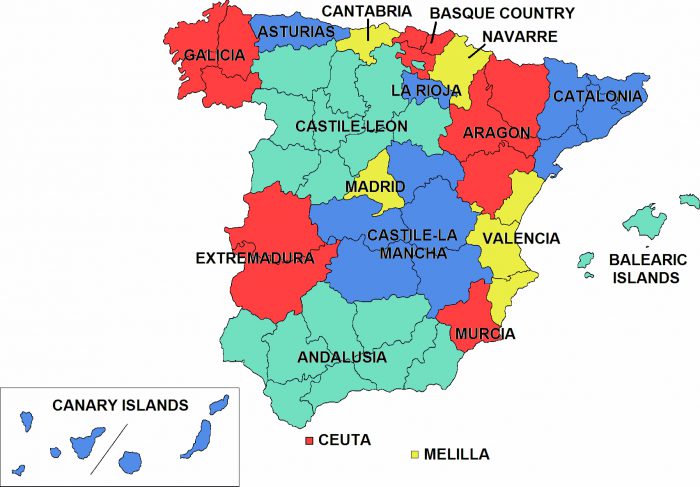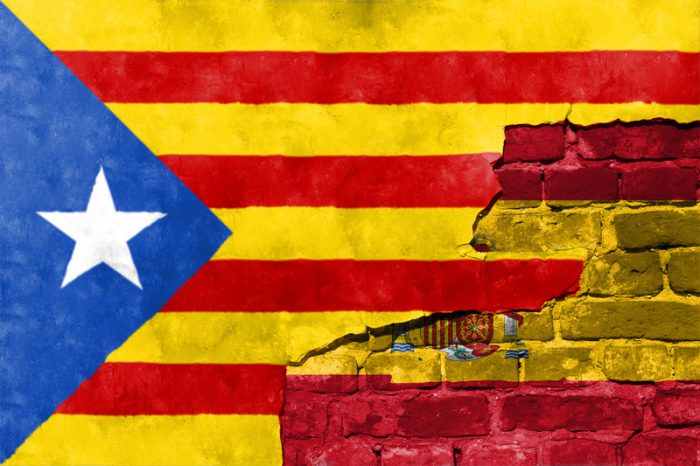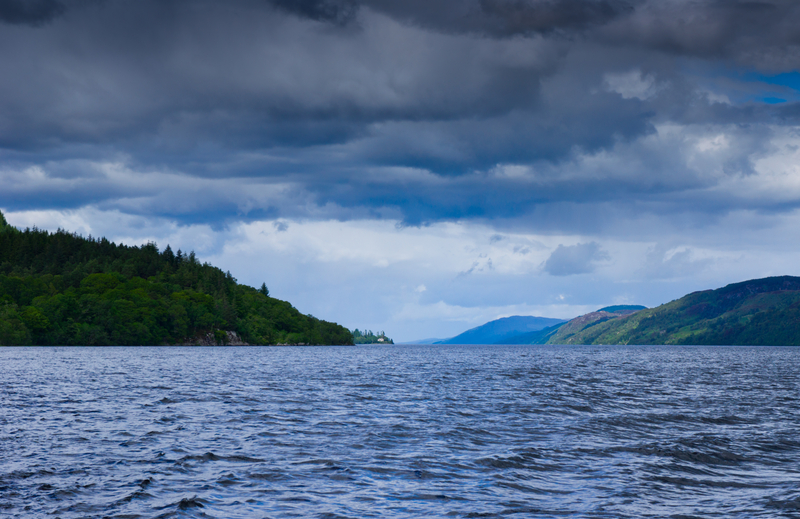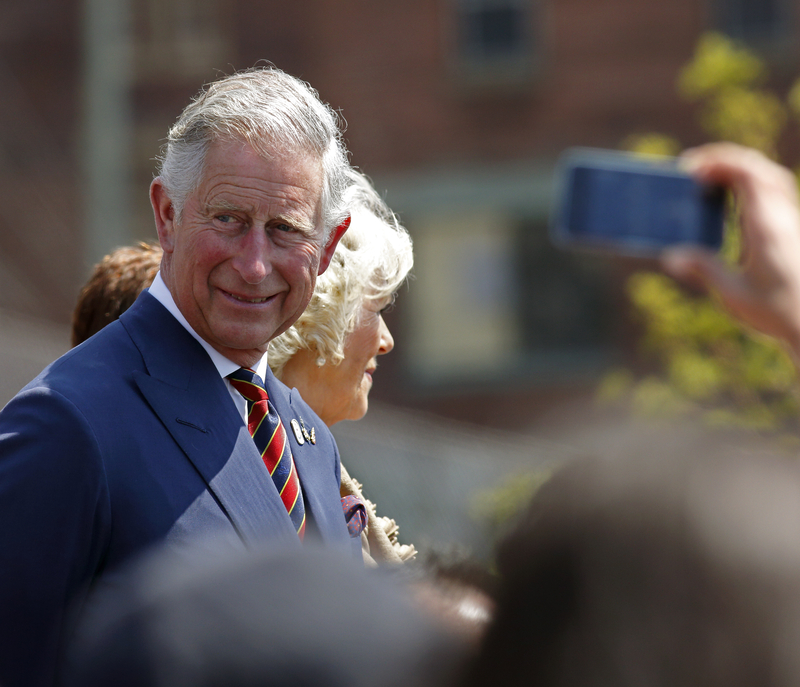On Friday, the Catalan parliament voted in favour of declaring independence from Spain. The vote follows a referendum, or public vote on a crucial decision, that was held in early October. That referendum's result was hugely in favour of Catalonia's separation from Spain.
The territory is found in northeastern Spain. Its capital is the world-famous city of Barcelona.
Different reactions
The vote is held in parliament for Catalan independence. (Getty Embed)
Tensions and emotions are very high across the country.
On one hand, pro-independence crowds celebrated joyously in the streets, as lawmakers behind the referendum applauded in Catalan parliament. At the same time, lawmakers opposed to the vote walked out in protest, as other Catalans expressed sadness and even rage at the idea of leaving Spain.
Meanwhile in Madrid, Spanish Prime Minister Mariano Rajoy urged his government to impose direct rule over Catalonia. This could include things like military force and removing the entire Catalan parliament.
How did they get here?
Some similarities to Canada

A map of the Spanish territories, called autonomies. (Wikimedia Commons)
Spain is a democracy that has 17 autonomous communities and 2 autonomous cities, or autonomies. (Think of the provinces in Canada or the states in the U.S.A.) Each of these autonomies has its own parliament and president, as well as its own unique style. This can lead to some issues, but generally all autonomies identify strongly as being Spanish.
Except Catalonia...
Huge crowds celebrate the move for independence. (Getty Embed)
Catalans have a long history of their own traditions, culture, cuisine, and even language. (Catalan is also commonly spoken in the nearby autonomy of Valencia.) If you think about the relationship between the province of Quebec and Canada, you can kind of understand the tension.
Castille and Aragon
The marriage of Isabella and Ferdinand united two kingdoms in the new country of Spain. (Getty Embed)
Centuries ago, what is now Spain was two kingdoms: Castille and Aragon. Then in 1469, Queen Isabella I of Castille and King Ferdinand II of Aragon fell in love and got married. Ten years later? Bingo! Their kingdoms joined together to form Spain. Love may be eternal, but the bond between Isabella and Ferdinand didn't exactly solve everything.
To the world, it's Messi versus Ronaldo! But in reality, Real Madrid against Barcelona is all about Spain versus Catalonia. (Getty Embed)
You can find examples of this long-standing tension in nearly all aspects of Spanish and Catalan culture. Even in sport! That's right, the two biggest football teams in Spain—Real Madrid and Barcelona—are a part of this battle. The word "Real" means "Royal" and was given to the team by King Alfonso XIII of Spain in 1920. Whereas the team of Barcelona has long been a symbol of Catalan culture.
What's next?
Spanish Prime Minister Mariano Rajoy reacts to the vote. (Getty Embed)
Of course, it's one thing for this rivalry to lead to an exciting football match. It's another when it leads to the breaking apart of a country. And Spain will not just let Catalonia walk away.
Europe as a whole is already dealing with plenty of unrest. Last year's Brexit vote to have the United Kingdom leave the European Union (EU) shocked the continent. For now, the EU remains a solid institution. But from France to Sweden, strong groups in other European countries are considering leaving themselves.
Can Europe and its countries come together and stay together despite their differences? Or will Brexit and Catalonia inspire more groups to break away and form their own nations?
 Catalan independence from Spain has been an issue for generations. (© Juris Kraulis | Dreamstime)
Catalan independence from Spain has been an issue for generations. (© Juris Kraulis | Dreamstime)










I read about this.